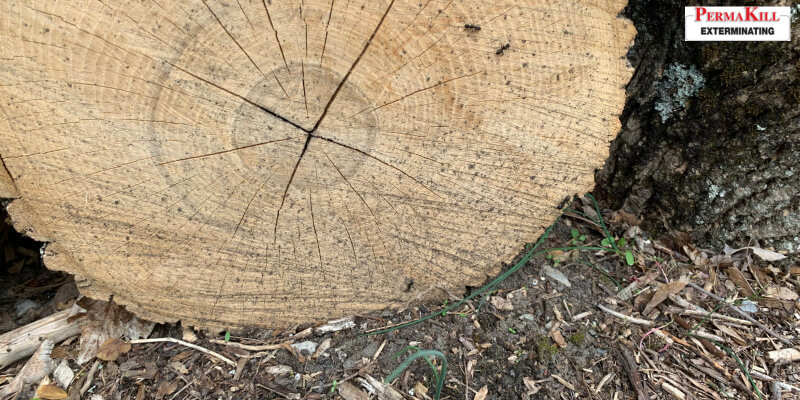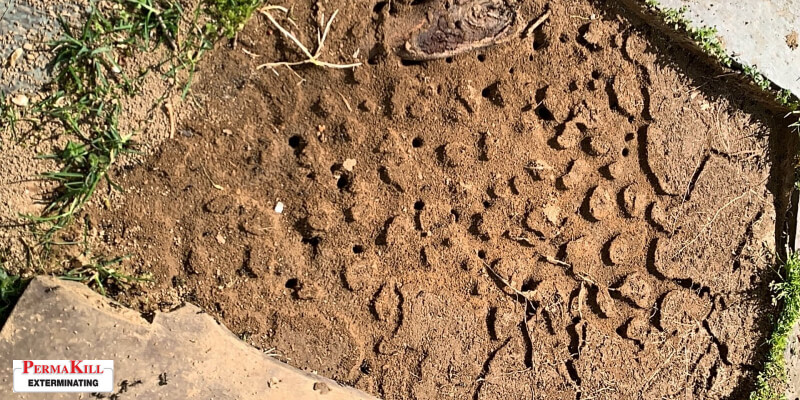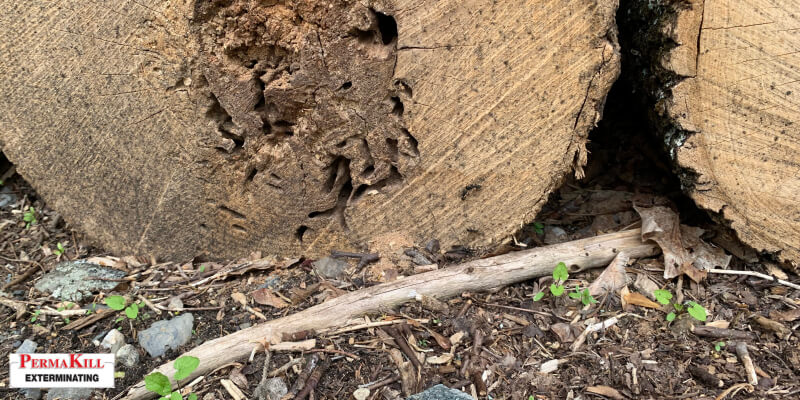


Having pharaoh ants living in your home can drive you nuts. These tiny, golden ones tend to crawl out of wall switch plates, along with bathtubs and sinks - they can seem to practically come out of nowhere. The Pharaoh ant, which is one of the ant species known as "tramp ants," can cause serious problems in homes, hospitals, and medical facilities. During the 1980s, these ants became well-known in hospital circles because they were seen infesting burn units, appearing out of nowhere, and outright feeding on the exposed mucous and skin of burn patients.
These days, pharaoh ants are not as dangerous as they once were, but they can still become a serious threat. This is why it's understandable if you want to get rid of these small ants in your home once and for all. In order to do that effectively, you need to know even just the basics about pharaoh ants and why baiting is the best way to kill them.
They are the tiniest of ants, measuring 1/16th - 1/32th of an inch. The pharaoh ant queen is substantially bigger than the pharaoh ant worker. They are golden tan to golden brown in color and live in multiple colonies, which are small, hidden ones usually found inside wall voids, in the insulation of outer walls, and around water lines. These ants are attracted to heat and they need moisture to survive. They make use of a pheromone trail in order for a foraging ant to scout for food.
Pharaoh ants are considered "polymorphic," meaning there can be multiple queens per colony. In fact, there can be as many as 100 queens and even more in an entire colony. Each colony can house as many as 300,000 ants. The queens are also interchangeable, which means the colonies can go on indefinitely. These colonies can divide to form another new colony or several new colonies. This means that even if there are only a few of them crawling on your wall or across the counter, you may have a bigger problem than you think. You will probably end up chasing them around the house as they tend to just show up in random areas.

Spraying chemicals seems to be the easiest way to get ants and other pests in your home. Unfortunately, this seldom or never works on pharaoh ant infestation because their nests are hidden and isolated. Spraying insecticide on them can actually make the problem worse because it can actually cause an increase in their egg-laying and reproduction. Also, the colony can divide as its survival strategy. So instead of seeing dead insects, you will end up dealing with not just one but several colonies.
Pesticides are not entirely useless in this case. It may provide temporary relief in situations where immediate control is needed, such as nurseries and hospital burn units. But you need to use the right product for spraying because the wrong chemicals or treatment method can cause the ants to repopulate faster.
A specialized bait station program works best in getting rid of pharaoh ants. Now there are lots of commercial indoor baits in the market made for controlling the ants, but these are temporary solutions at most as none of them can completely solve the problem with just a single application. These baits require maintenance and have to be replaced every few days. In order to get the best results, you have to work at maintaining the baiting program.

The most common baiting products and techniques that you can use for pharaoh ants are gel and liquid baits, insect growth regulators, and food-based baits. Finding the right one is basically a trial and error. if one bait type doesn't work out, you need to switch until you find one that does the job.
Most gel baits in the market work by eliminating the worker ants. This and liquid baits are made to be eaten and consumed by the worker ant since they cannot eat solid food. The solid ones they find are carried back to the nest as food to the immature ants, who in turn produce liquid that the worker ants feed on.
The only way to eliminate the colony is through starvation. Killing the workers via gel and liquid bait makes perfect sense because the pharaoh ant colony will not be able to sustain itself as it's dependent on the workers to bring food. Once the internal food sources are gone, the queens and the other ants will eventually starve to death.
When it comes to bait placement, it's important to note that the workers will not eat anything unless instructed to do so by a scout ant, who is tasked to find the colony's food source. Once the scout ant finds a food source, it will produce a trail pheromone, which is a signal to the workers to feed and carry food back to the nest. This is what makes baiting tricky. Sometimes they will not eat the food even if you place it directly on their path. You have to wait for a scout ant to find your bait and then instruct the workers to feed on it.
If the pharaoh ants in your home are not responding to your commercial gel baits, consider using insect growth regulators, a solution that can make the queens in the colony sterile. Once they become unable to reproduce, the colony will eventually die out and the nest eliminated. Take note that this regulator is not used alone but applied in a specially made bait formula that is not commercially available.
Using a slow-acting pharaoh ant bait is the alternative if the one that you're currently using is not effective. These baits provide a variety of foods that the sugar ant usually finds in nature. These natural foods include other insects aphid honeydew, nectar, and plant products. Insects are equivalent to proteins/grease ant baits while the others are equivalent to sweet-based baits. You combine this with the insect growth regulator to achieve the baiting system that you need.
To make this bait, simply mix a small amount of the insect growth regulator in a small bowl of 1/4 cup peanut butter and 1/4 cup apple mint jelly. Mix these all together and then fill a small syringe or turkey baster with the mixture using a spoon. Inject the liquid into drinking straws and then cut them into one-inch pieces. These will serve as your bait tubes. Place the tubes in spots where the ants can find them. The bigger the area, the more tubes you should use.
Check your plastic tubes after a week and see if the ants are feeding on them. An indication that they are feeding is small piles of bait next to the tubes. Focus on these areas and replace the empty tubes. Empty tubes may show that a nest is nearby. Add more tubes in areas where there is heavy feeding activity.
Repeat the cycle after two weeks and keep at it for one to two months. This takes lots of patience but it will pay off if the ants are constantly feeding. Don't expect to see dead ants lying around, they will just disappear. If you see no ants for at least a month, then you can assume that you have done the damage.
You can put liquid baits outdoors as a long-term solution in controlling pharaoh ants. The baits will serve as food sources for the ants outdoors and will help prevent them from migrating indoors. This will also serve as a barrier for outside invading ants and help put a stop to re-infestation outdoors.
Here is How to Kill Ants Using Natural Ant Bait and Other Non-toxic Methods.

Sometimes even your best efforts, from liquid ant bait to repellent insecticides, will not be able to stop your pharaoh ant problem. In this case, the best course of action is to let a pest control professional do the pharaoh ant control. They also take care of other ant varieties, including carpenter ant, Argentine ant, thief ant, ghost ant, fire ant, and pharaoh ant infestation.
PermaKill Exterminating provides pest control services for ants, bed bugs, rodents, and everything in between. You can ask for a one-time service or a seasonal extermination plan. Call PermaKill Exterminating now and put a stop to your ant infestation problems.